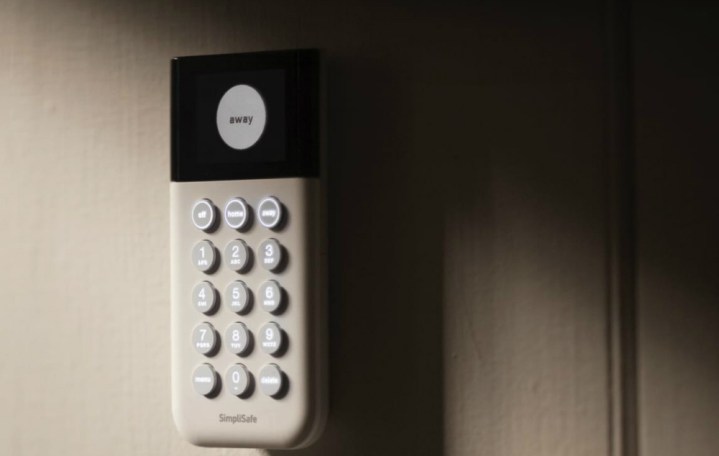Your home security system is the main line of defense against burglars and unwanted visitors. It can provide peace of mind when you’re away, but there are a lot of things your security system can do that you might not be aware of. For example, rather than just catching suspicious activity, it also lets you record your pets being silly for video clips worthy of America’s Funniest Videos.
With the right setup, your home security system can extend its functionality far beyond the basics. Here are seven things you didn’t know your home security system could do.
Connect to your smart home to disarm the system and turn on the lights
When you come inside, your first step is typically to turn on the lights and/or disarm your security system. You can actually disable your security system with the right key code and connect it to your smart lights so they automatically turn on when you enter the code. You can also connect it to other smart devices like a smart plug to turn on other devices.
Some security systems have integrated connectivity to larger smart home devices. If yours doesn’t, you might be able to connect it through a service like IFTTT, Apple Shortcuts, or something similar. Your security system can provide as much convenience as it does security.
Extend your siren to play on your outdoor camera
It takes a village, or so they say. While that quote might originally apply to raising a child, it also applies to home security. If one home in a neighborhood is targeted, it’s likely that others will be too. That’s why the entire neighborhood being on alert is a great way to deter crime and keep rates low.

An easy way to do this is to link the two-way audio from your security camera to your security system’s loudspeaker. When you speak to the intruder, it will broadcast so that all of your neighbors hear. It will draw attention to the situation and make your home a far less appetizing target for the would-be thief.
Send notifications to your phone when someone lingers
If your home borders a sidewalk, then you might want to turn off constant notifications (or at least set up activity zones to reduce false alarms.) People will walk by the front of your home all the time. The real problem arises if someone lingers for too long in one spot.
If your system is armed, it will send you alerts when someone ventures onto your property. Not all home security cameras have this unique function, but the Vivint Smart Home Security System is one of them. If it’s a neighborhood, it’s possible someone is just retrieving a lost ball or a runaway pet — but if you live off the beaten path, a stranger in your yard is probably not a great sign.
Your security system will let you save video clips to cloud storage for law enforcement
If the worst happens and someone does attempt to burglarize your home, your security system will let you save relevant video clips that you can later upload to a cloud storage service like iCloud or Google Drive. These clips can be turned over to law enforcement to help catch the person later down the line.
The main thing is preserving these clips so that you do not lose them. Many security cameras work on a rolling storage system that will automatically delete clips after a certain time. The ability to save clips for posterity is a key component of a security system.
Set off a silent alarm with a special pin code
It’s the nightmare of many people: someone forcing you to turn off the alarm to your home. If they’re threatening you, you have little choice but to comply with their demands. The good news is that some security systems let you enter a special disarm code that triggers a silent alarm and alerts authorities.

Simplisafe is one company that lets you do this. This “duress PIN” sends a signal to the team monitoring your home and notifies police. To anyone in your home, however, the alarm will appear to be disabled.
Many security systems operate even without power and Internet
A smart security system is only as smart as its Wi-Fi connection, right? Not quite. Most base stations have battery backups and cellular connections. While they might not be able to connect to every device in the home, they can provide monitoring services and send alerts out if parts of the system are triggered.

Of course, this requires that your security system have a battery backup and a cellular connection. While it won’t last forever, this backup security can be helpful during a major storm when the power goes out.
Your security might earn you a discount on your home insurance
Many home insurance companies offer discounts on your monthly premiums if you have a home security system installed. In a way, this helps pay for the system itself. If you get a ten percent discount on a $100 premium, that’s $120 per year you’re saving on insurance costs.
If you think your home insurance is just a little too high (or you just want a way to justify investing in a smart home security system), take a look at the terms of your policy to see if you qualify for any discounts.




